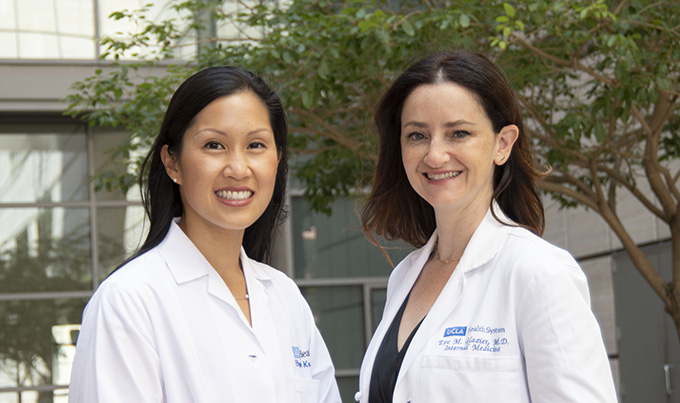(Ask the Doctors) Research continues on long COVID treatment
Published 8:49 pm Wednesday, March 26, 2025

- Eve Glazier, M.D., MBA, is an internist and associate professor of medicine at UCLA Health. Elizabeth Ko, M.D., is an internist and assistant professor of medicine at UCLA Health. Send your questions to askthedoctors@mednet.ucla.edu.
Dear Doctors: Has there been any progress in figuring out how to treat long COVID? I have been dealing with the symptoms for two years, and my doctor seems to have given up. Is anyone even doing research anymore? I feel as though we are being forgotten.
Dear Reader: It has been five years since the start of the COVID-19 pandemic. The disease that once dominated headlines now rarely makes a blip in the news, but that doesn’t mean it is no longer with us. SARS-CoV-2, the virus that causes COVID-19, continues to circulate throughout the world. The United States saw more than 1.25 million cases of the disease in January alone, and more than 3,600 deaths. And for at least 10% of those who recover, developing a debilitating condition known as long COVID remains a threat.
It is estimated that at least 20 million Americans are now living with long COVID, with more developing the disease each day. This makes the condition a significant threat to public health. People with long COVID not only miss work, but sometimes have to stop working altogether. The disease often limits their ability to participate in normal activities, and it has an effect on their families and those around them.
For those who are not familiar, long COVID is the name for a group of physical, neurological and psychological symptoms that persist for months, and sometimes years, after someone has recovered from the initial infection. Among the most common are exhaustion, brain fog, headache, loss of the sense of smell and/or taste, muscle pain, heart arrhythmias, respiratory problems, depression and disordered sleep. The cause of the condition is not yet understood.
When it comes to research into helping people living with long COVID, we are glad we can report that it continues to be robust. At this time, more than 450 clinical trials are either in progress or are actively recruiting participants. Researchers are looking at drugs, treatments, medical devices, behavioral therapies and other interventions. One study will examine the use of taurine, an amino acid, to help people who have developed cardiac issues as a result of COVID-19.
Another study is exploring if a specific amino acid can reduce the number of viral particles circulating in the body and, thus, limit the scope of the disease. Several studies are exploring the use of stem cells collected from the patient’s own body to help ease symptoms. One intriguing study is looking at sauna as a potential treatment.
People with long COVID develop different combinations of symptoms that vary in severity. As a result, treatment is on a case-by-case basis. It often involves not only a primary care doctor, but also multiple specialists. These can include a cardiologist, pulmonologist, neurologist, physical therapist and mental health professionals. If your own doctor appears unable to manage your care, we urge you to seek a referral to someone who has developed a specialty in long COVID. They can assess your specific case, guide you to the appropriate specialists and treatments, and help coordinate your ongoing care.
Eve Glazier, M.D., MBA, is an internist and associate professor of medicine at UCLA Health. Elizabeth Ko, M.D., is an internist and assistant professor of medicine at UCLA Health.





